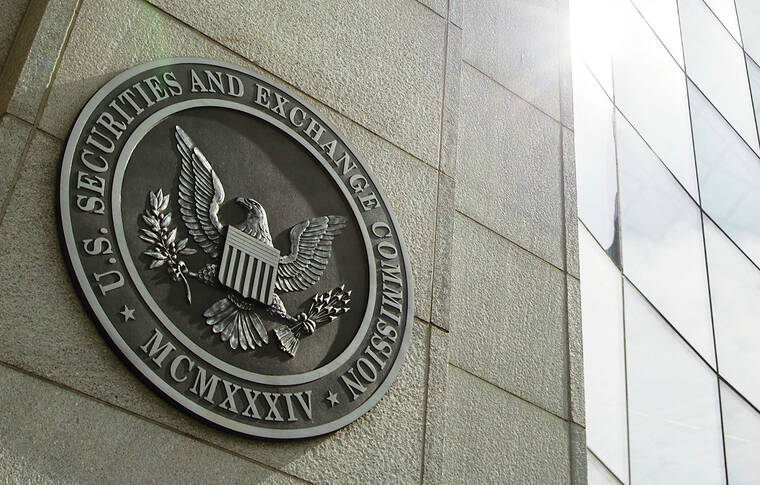SEC lawsuits against cryptocurrency companies raise questions about industry’s future
WASHINGTON — First came the crypto winter, then the alleged fraud wrought by FTX founder Sam Bankman-Fried, and now the lawsuits.
The U.S. Securities and Exchange Commission filed lawsuits last week against the world’s biggest cryptocurrency exchanges, Binance and Coinbase, deepening tensions between the government and a volatile industry that has been marred by scandals and market meltdowns.
Binance and Coinbase are both alleged to have violated the law by operating as securities exchanges without registering their businesses with the SEC. Binance faces additional charges, along with its CEO, of diverting customer funds to a separate business, among other accusations. Most recently, the SEC asked a federal judge to freeze the assets of Binance’s U.S. platform.
The lawsuits are the latest in an ongoing tussle between government officials who describe the crypto industry as the ” Wild West,” and creators of digital assets who seek to legitimize cryptocurrency as a currency of the future.
Industry leaders say that, with their latest actions, U.S. regulators are more clearly signaling that they seek to ensure cryptocurrency has no room in the traditional financial system.
And leading regulators are more open about their thoughts on the merits of cryptocurrency. SEC Chair Gary Gensler told Bloomberg on Tuesday: “We don’t need more digital currency … we already have digital currency — it’s called the U.S. dollar.”
What results from the legal battle could greatly diminish the growth of the crypto industry or, alternatively, restrict the scope of the SEC’s regulatory authority.
Federica Pantana, an attorney at Davidoff Hutcher &Citron in New York who handles SEC cases, has been watching the episode unfold and is now clear with her crypto clients in the interim: “With the SEC taking a strong enforcement agenda, there is no question that firms have to take the view that crypto assets are securities and platforms that exchange these assets have to accept that.”
Whether companies that trade in crypto decide it makes business sense to register with the SEC, or drop their businesses all together, will determine the landscape of the industry in the future, Pantana said. The reverberations of the litigation could put some companies out of business, she said.
The crypto industry already knew it was under a tough spotlight from Washington’s regulators and politicians. The collapse of crypto prices last year as well as the demise of several notable crypto companies — including FTX — exposed investors to billions of dollars in losses. Gensler had repeatedly stated, both to Congress and in public appearances, that he believes the SEC has more than enough authority to regulate the industry.
Treasury Secretary Janet Yellen told CNBC Wednesday that she’s “very supportive” of the SEC using the tools it has to protect consumers and investors.
Despite the increased scrutiny from regulators, the crypto industry was expecting Congress to eventually intervene and help legitimize the industry through new laws. Several bills were introduced last year by Democrats and Republicans that would have put crypto under the authority of the Commodity Futures Trading Commission and made other products, including stable coins, more legitimate by standardizing what assets those products could hold.
Yellen said Wednesday that she sees “some holes in the system where additional regulation I think would be appropriate and we would like to work with Congress to see additional legislation passed.”
Crypto lobbyists now believe that those laws are more urgently needed to stop the SEC from moving forward with its lawsuits.
The most viable piece of legislation sits in the House Financial Services Committee, spearheaded by Rep. Patrick McHenry, R-N.C., who chairs the pane. The legislation was co-authored by Glenn Thompson, R-Penn., chairman of the House Committee on Agriculture.


